Aimen Jafri
"I always say to my community members who are new to Tassie: give it time. Tasmania has given me the opportunity to know myself better and achieve my dreams."
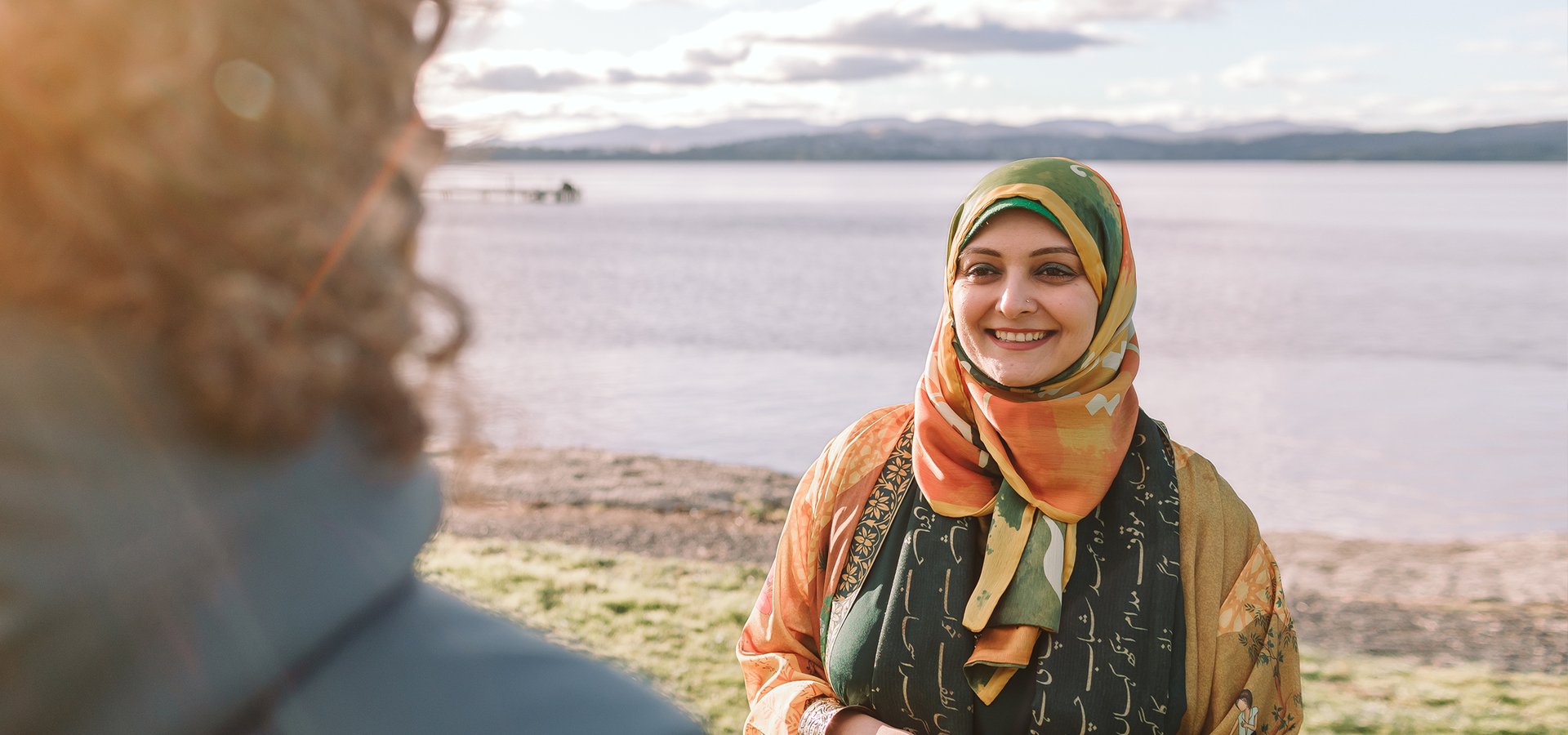
"I understood early on that it would be a long process. I had to be patient. I channelled all my negative energy into my work and learning different skills."
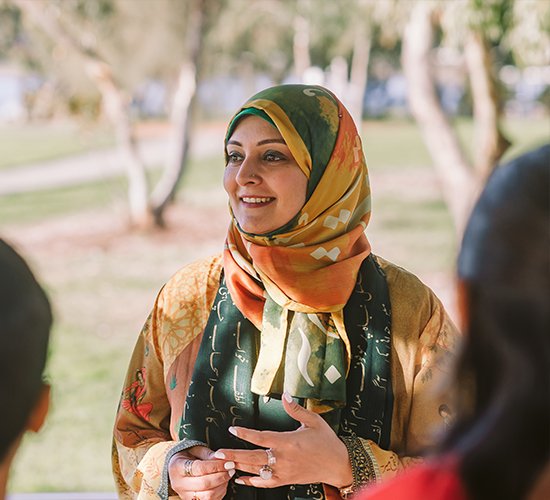
Aimen Jafri has two lives: one before coming to Tasmania and one after.
For nearly all of it she has chased belonging.
Born into a large, Urdu-speaking extended family, Aimen was the first child of her generation to be born to either side. Her childhood was filled with love but also expectations. In a family influenced by Indian customs and traditions, Aimen felt like an outsider in the community and, at times, in her own home. Her grandmother aspired her to be raised as a perfect “housewife.” Her grandfather, a director of an oil and gas company in London, had his own ideas.
“My grandmother saved for my dowry from the day I was born. It’s an Indian tradition,” Aimen explains. She was raised according to certain ideals of womanhood, but she grew up with brothers and male cousins: “I’m not a tomboy but I don’t operate like an average girl either.” She felt happiest playing volleyball and dreaming of a career serving communities, ideally with the police. She was constantly pushing boundaries.
“I had to fight everyone to go to volleyball games. I was not allowed to travel on busses. I got a scholarship to study a Master’s in Paris, but I wasn’t allowed to go. Even though women can technically serve with the police in Pakistan, I couldn’t, because, traditionally, girls ‘belong’ in their husband’s home, and what I was asking was not traditional.”
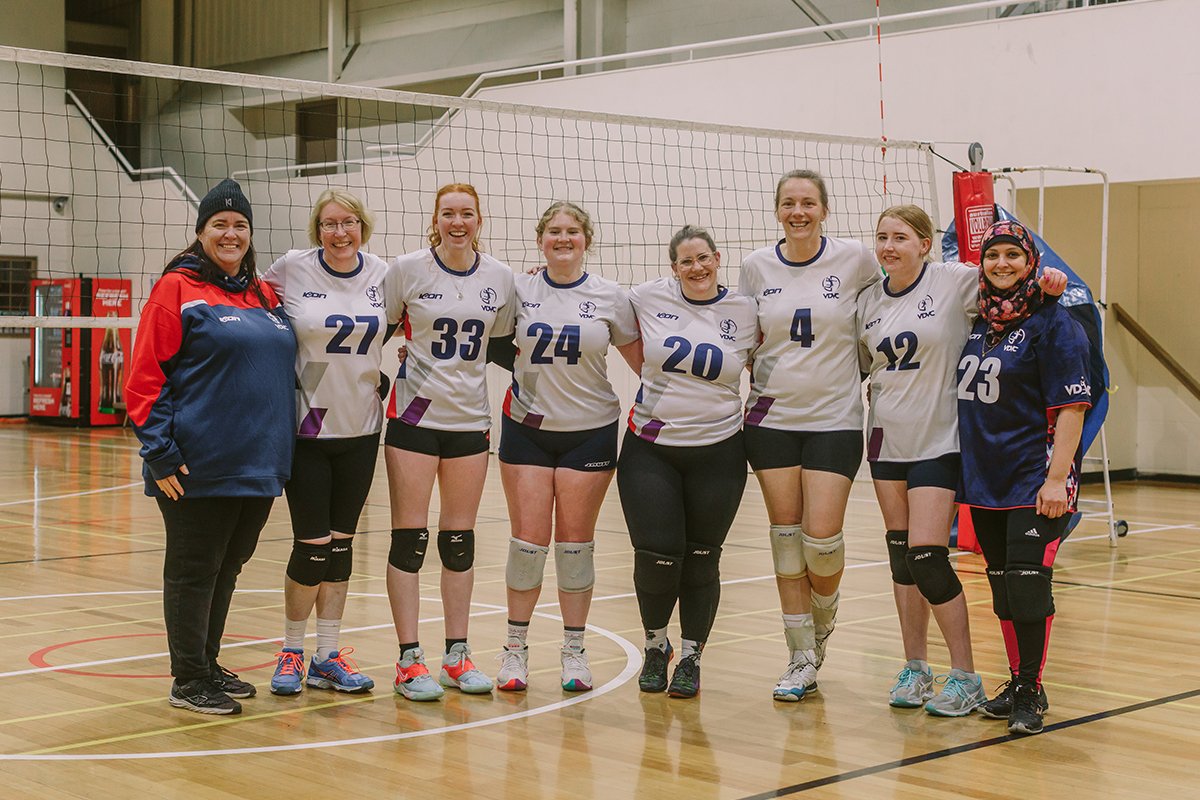
Aimen’s father helped her find avenues for her passions, through books, art, and helping with practical jobs around the house. But she was constantly living according to others’ expectations of who she should be. “I only realise it now that, unconsciously, I was being trained to be resilient, patient and persistent,” she reflects.
By the time she reached university, Aimen was beyond the age when women were expected to marry. “I was so scared of getting married, I took short courses during every semester gap,” she explains. “I thought, the day my family sees me doing nothing is the day they’ll get me married.”
Even if it couldn’t be for the police, Aimen still dreamed of a job that drew on her love of serving the community. She worked her way into Unilever, a multinational company and one of Pakistan’s top employers. “Deep down, my family was proud of what I was doing,” she reflects. “But the cultural influence was such that I never got the validation I needed as a girl that I belonged there. I had to get married.” Then, at age 24, she did.
As soon as they married, Aimen and her husband, Ali, moved to Doha, Qatar. “It was hard for me, leaving my family, that house of 24 years, the country. I had no idea where I was, no friends, no social life, nothing. For me to belong, I learned Arabic,” she says. Luckily, her outgoing Unilever director was able to offer her a remote work position in his start-up. That connection kept her grounded. She started playing for Qatar’s national volleyball team.
As the years passed, Aimen’s desire to belong fuelled a persistent anxiety. Another migration to Abu Dhabi for Ali’s work made her wonder even more how she would ever feel settled. She had now become a mother, and like many parents, she took a career break to raise her children. As much as she enjoyed focusing on the home, her dream to work for police and communities kept her awake at night. She recalls, “It was no less than a miracle when I got a call to volunteer with Abu Dhabi police,” a place where she always felt she belonged.
Aimen worked hard to put down roots, but Abu Dhabi never quite felt like home – for her or her family. Aimen and Ali wanted a “more grounded, less materialistic” place to raise their children. Ali applied for an Australian skilled migrant visa, and Aimen’s second life began.
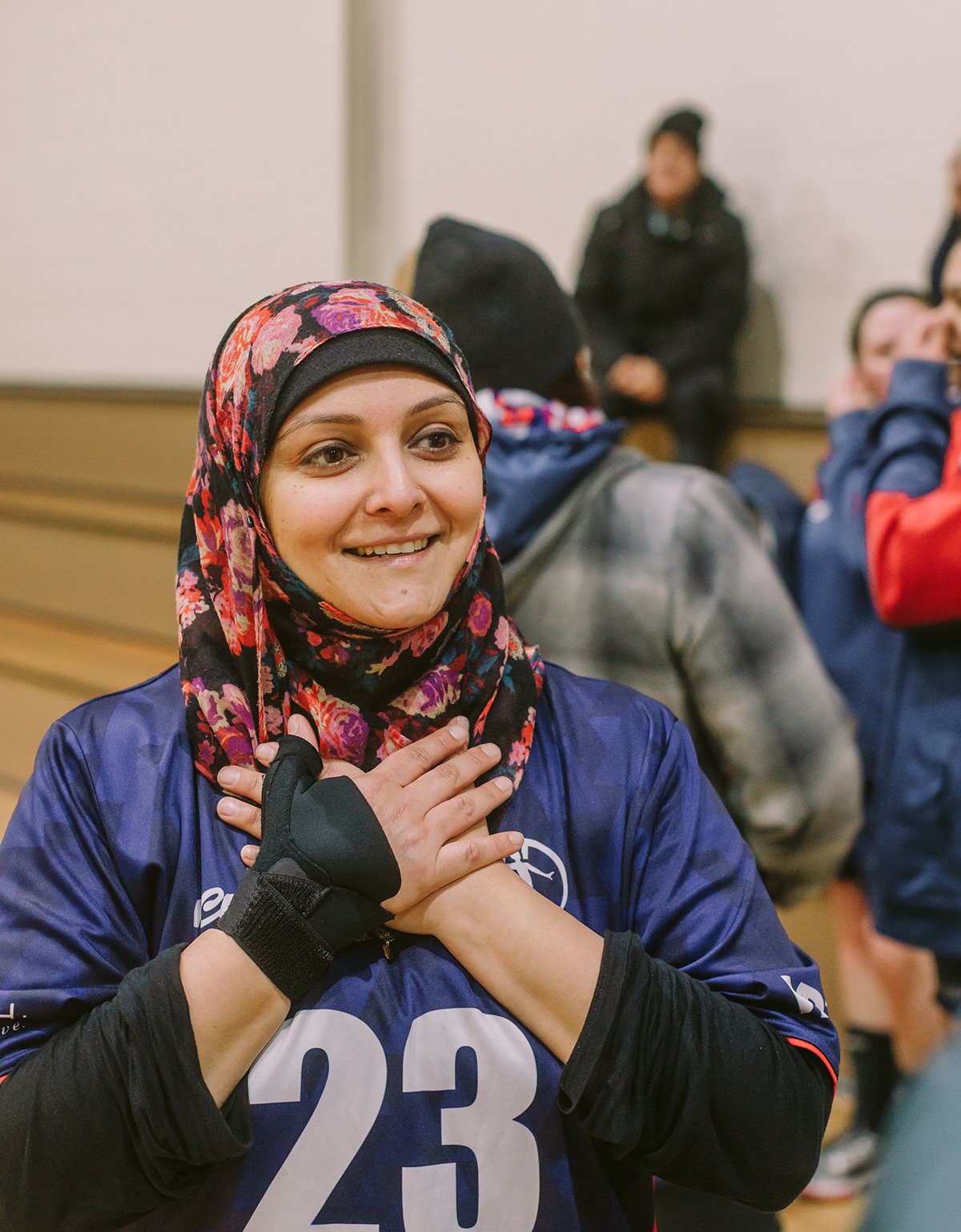
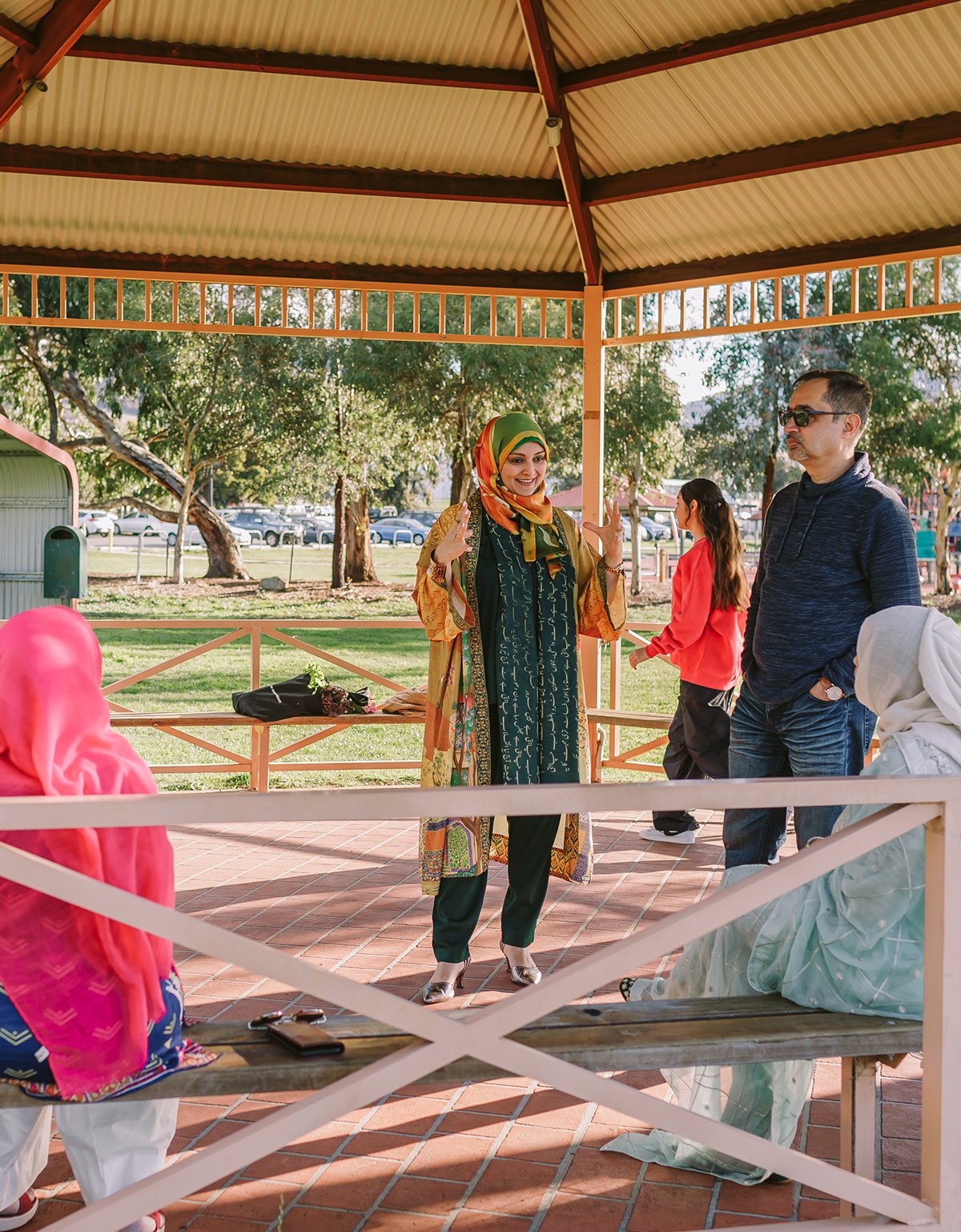
“I still remember when the plane was landing in Hobart for the first time. I felt as if my heart just connected, as if I belonged here. I could feel the energy in my body saying three words: ‘this is home.’”
That magical, connected feeling carried Aimen through the uncertainty and challenges that followed. They flew back to Abu Dhabi to pack up their life, but Ali unexpectedly needed to stay behind. Aimen returned to Hobart alone: “another migration, another change, a new hemisphere, a new continent.” Ali’s pay was now split between two households, and money was tight. There was no support. “I would buy five apples a week,” Aimen recalls. “And I would cut an apple in half and give one half each to my children, Hiba and Haider. I kept telling them it was going to be fine, but inside, mentally, I was struggling. One day, Hiba came to me and said, ‘Mum, are we poor? We had such a good life in Abu Dhabi. What’s happening to you?’ And I thought, ‘This is not right. Aimen, you need to do something.’”
So Aimen steeled herself and started pushing even harder to find a job. “But obviously – we know how things work in Tasmania,” she laughs. Aimen knew that, in a close-knit community like Tasmania, she would need to build relationships. “I understood early on that it would be a long process. I had to be patient. I channelled all my negative energy into my work and learning different skills.”
She volunteered at the Clarence Little Athletics Centre, Migrant Resource Centre Tasmania, the Beacon Foundation, and the Shia Association of Ahl e Bayt Tasmania. She started playing volleyball again. But she kept hearing from others who had migrated that it would be impossible to find work. “They would say, ‘You’re wasting your time. You’re a Muslim woman with no local qualifications or experience.’ Somebody once said to me to take off my hijab for a job interview, because I wouldn’t get the job if I was wearing it. There were all these voices saying how bad it would be, but my kids looked up to me and I had to do it for them.”
Aimen was able to get temporary work, but she struggled to find meaningful, ongoing roles. Aimen still remembers her first time being paid in Tasmania. “It was a stipend from the Beacon Foundation,” she recalls. “It was $10 per week, and that was so much. I was never a spoiled child, but it was after coming to Tassie that I understood the value of money.” She even got a job with the Department of Police, Fire and Emergency Management, but she couldn’t complete her training for the Police, because she was still a temporary resident. It was a constant battle – an experience which gave Aimen a strong sense of purpose for her life here.
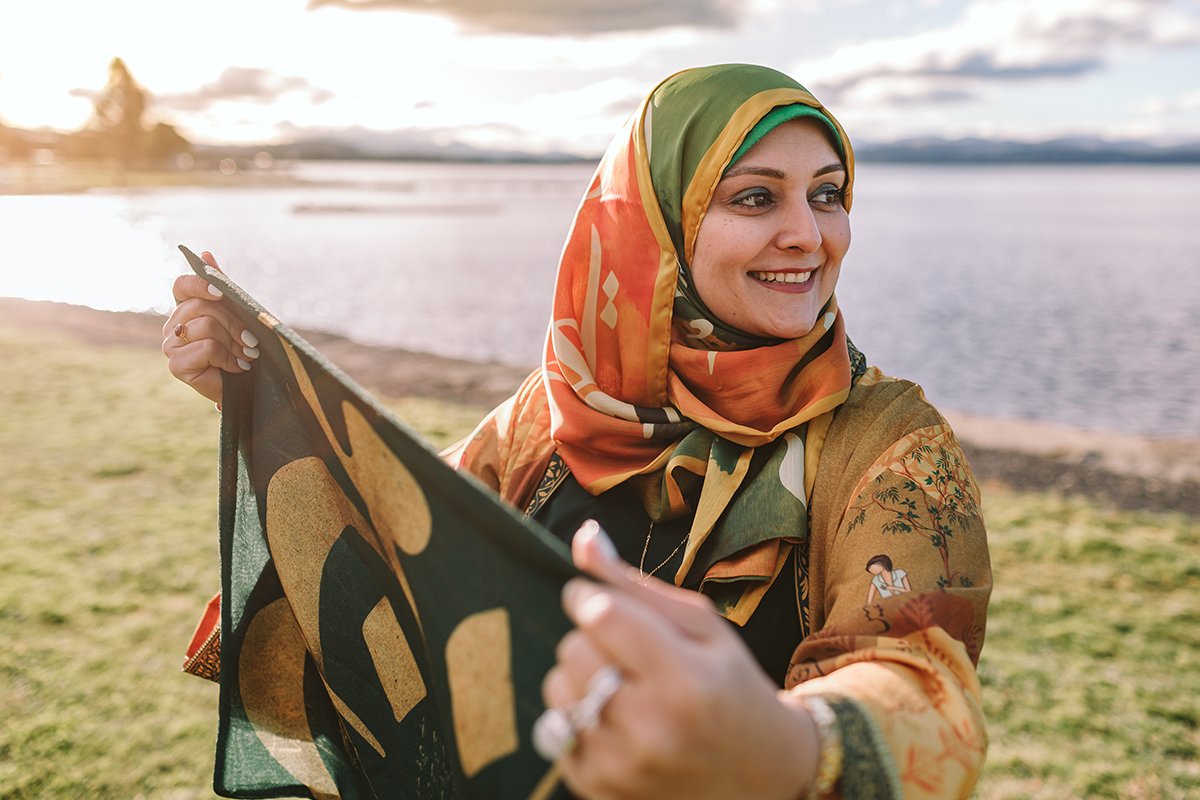
Whatever I am now is what has happened to me in the past. All my life, exactly what I was told to suppress as a young girl is what has helped me succeed here.
“I always pray to God to help me find my pathway, and my religion teaches me to have a voice about what is right and wrong,” she says. “What I want to do in Tasmania is to work on cultural inclusion and diversity. I see myself as a conduit between locals and migrants. Migrants are here to grow together and co-exist, not take jobs. I know how it feels to chase your dreams and be told that you don’t belong. We need to give each other time and understand each other better, to remember that we are all humans.”
Aimen and Ali have just completed their five years in Tasmania. “And the general migrant practice is you leave the state when you complete your visa requirements for better opportunities and growth. Everybody who came with me has gone. They don’t ask if you’re moving, but when.” But Aimen loves it here. “If I touch the soil, I feel I am absorbing the energy here. But it’s not in my control. There’s a word in Urdu: ‘rizq.’ It means food. Islam says your rizq is from God, and he decides where it comes from. So, the day my rizq is not from Tassie, I’ll have to leave.”
Aimen is now Chair of the Multicultural Council of Tasmania and works at the Migrant Resource Centre Tasmania. She advocates for migrant communities, who want to make Tasmania home. “Whatever I am now is what has happened to me in the past. All my life, exactly what I was told to suppress as a young girl is what has helped me succeed here. I want to give back all the love I have gotten. I always say to my community members who are new to Tassie: give it time. Young families often live in Sydney or Melbourne because they think there are more opportunities there. But Tasmania has given me the opportunity to know myself better and achieve my dreams.”
Aimen prays her rizq will remain here. “This is my home; this is where I belong: Tasmania.”
We worked with southern Tasmanian photographers Fred + Hannah for this Tasmanian story.